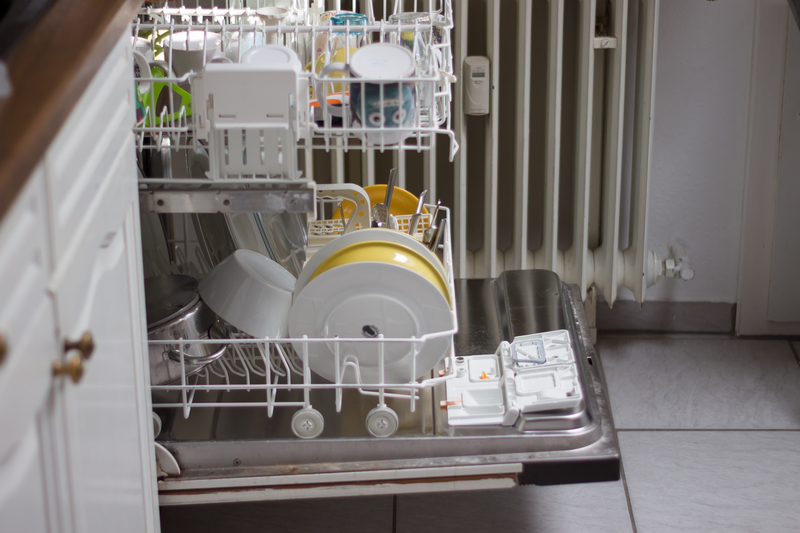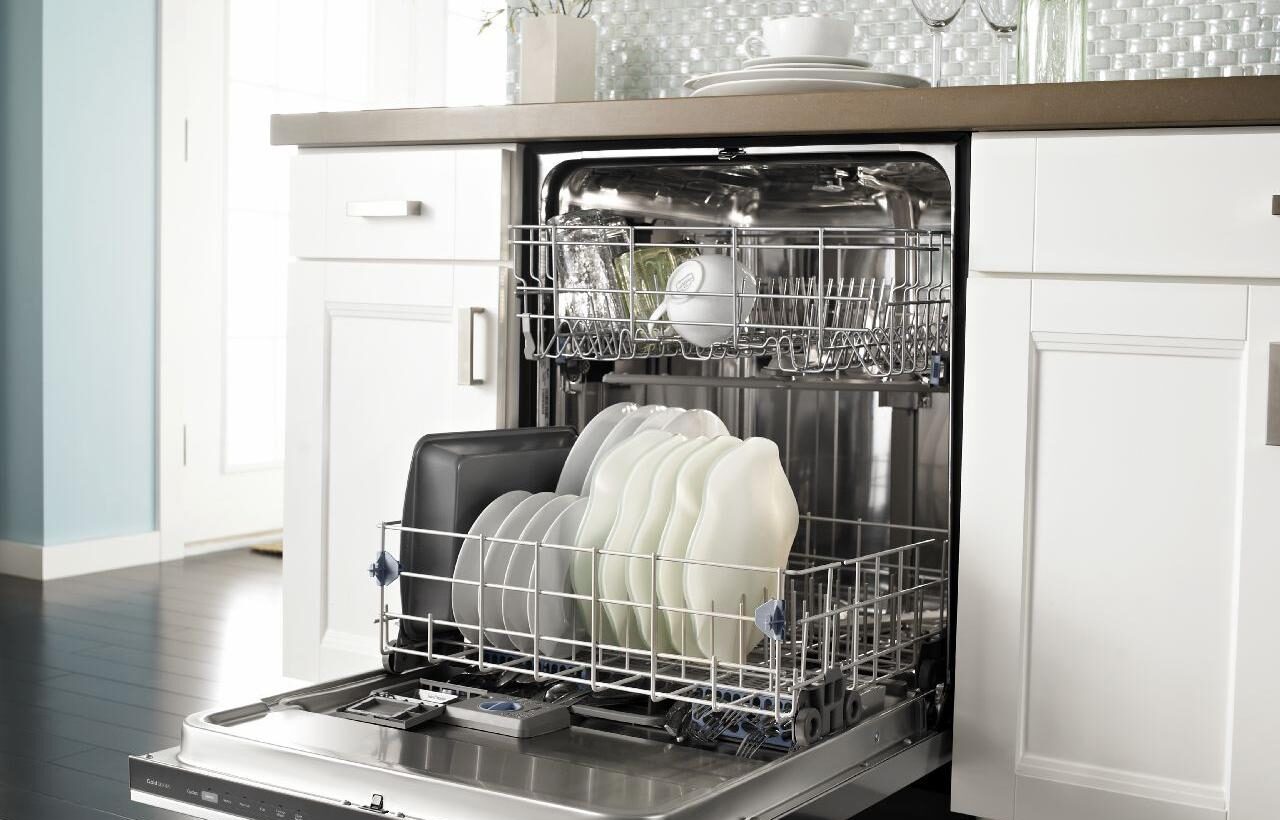This article is your complete guide to finding out exactly how many watts the average dishwasher uses per load. On average, dishwashers consume between 1,200 and 2,400 watts of electricity per cycle. That’ll cost you between $2-3 a month, depending on how much you run your dishwasher. This post will break down much more than just the average electricity a dishwasher uses. So keep reading!
Here at The Energy Professor, we want to give you the information you need to not only save money on your energy bill but also to become more energy efficient. We hope you find this post helpful! It makes it easier for you to know more about how much electricity a dishwasher uses. Be sure to also check out our one-of-a-kind energy savings calculator!
How Much Electricity Does a Dishwasher Use?

The average dishwasher consumes between 1,200 and 2,400 watts of electricity per cycle. Translated to an average cycle time of one hour, this amounts to an electricity consumption of 1.2 to 2.4 kilowatt-hours (kWh) per cycle.
- Average Dishwasher Consumption: The range of 1,200 to 2,400 watts per cycle is correct for many dishwashers. This translates to 1.2 to 2.4 kilowatt-hours (kWh) for an average cycle of one hour.
- Efficiency of Modern Dishwashers: Modern, energy-efficient dishwashers can indeed use as little as 0.8 kWh per cycle or even less, thanks to advancements in technology and stricter energy efficiency standards.
How Much Electricity Does a Dishwasher Use Per Month?
On average, dishwashers can consume between 36 and 72 kilowatt-hours (kWh) of electricity per month, assuming daily use. This range may seem broad, but it’s important to note that dishwasher power consumption can vary significantly based on several factors, including the age and model of your dishwasher, how frequently you run it, and the specific cycles you choose.
You might also be curious about the dishwasher watt rating, which measures the machine’s power usage. Typically, dishwashers use between 1,200 and 2,400 watts per cycle. By understanding this wattage, you can better estimate your appliance’s monthly electricity consumption. When it comes to the cost, it largely depends on your local electricity rates. Based on these rates, you could be spending anywhere from $4 to $9 a month to operate your dishwasher. It’s crucial to factor in these costs when considering your overall dishwasher electricity use.
Related Post: Is a Dishwasher or Handwashing Better?
How to Save on Your Dishwasher Costs

- Hand-Wash Your Dishes: This can be more cost-effective compared to running your dishwasher.
- Run Dishwasher When Full: This ensures that you’re making the most of the average wattage of dishwasher usage per cycle.
- Invest in an Energy Star Dishwasher: Brands like LG offer a range of Energy Star-rated dishwashers that can help you save money and energy.
- Consider Upgrading Models: Newer dishwasher models generally have lower watts for dishwashers and are more energy-efficient compared to older models.
- Avoid Peak Hours: Energy costs more during “peak hours,” which are times when electricity is in high demand. Running your dishwasher later at night can be more cost-effective than operating it right after dinner, around 6 pm.
Related Post: How Many Watts to Run a Refrigerator?
How Much Does it Cost to Run a Dishwasher FAQ?

Q: How many watts does a dishwasher use?
A: On average, dishwashers use around 1200 watts of electricity per load. This converts to 1.2 kWh for a 1-hour cycle. It’s worth noting that newer dishwashers tend to be more energy-efficient than older models. In fact, according to the U.S. Department of Energy, a new Energy Star-certified dishwasher uses about 12% less energy than a non-certified model.
Q: How many amps does a dishwasher pull?
A: An average home dishwasher will use ten amps. This will vary based on the brand and make of the dishwasher you have. To find your dishwasher amps, look on the brand website under specifications to see the watts/year of your dishwasher. You can also typically find how many amps the machine draws on the back of your dishwasher in the specs section or the owner’s manual.
Q: Is it cheaper to run a dishwasher at night?
A: If you want to save some money on your electric bill, try running your dishwasher at night before bed. Peak dishwasher time is after dinner. You will want to run your dishwasher before bed when the lights are off, and the grid is less busy to save some money.
Do you Need Cheaper Electricity?
If you’ve taken the time to understand the information on your bill and discovered you’re paying more than you’d like for your electricity, have you looked around for a cheaper deal? The Energy Professor has a wealth of information on ways to save on your utilities, including details of top deals that could significantly reduce your monthly or quarterly electricity bills.
We hope you found this article helpful! If you are looking for ways to increase energy efficiency and sustainability in your home, be sure to take a look at all of the latest renewable energy options in your area. The Energy Professor helps residential and small business owners find qualified energy suppliers in New York, New Jersey, Pennsylvania, Texas, Ohio, Maryland, Illinois, and Massachusetts.

